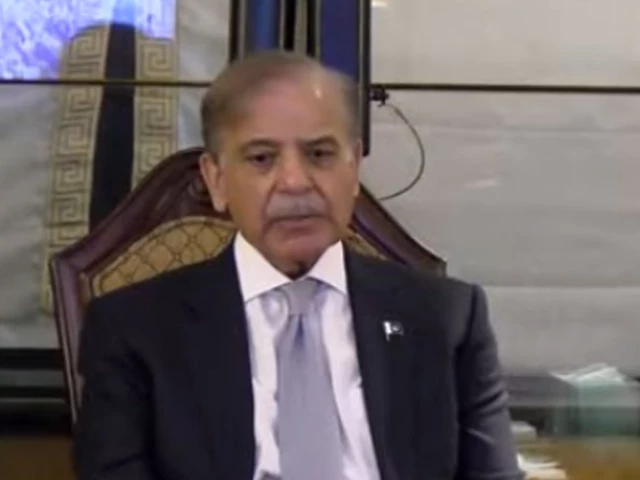The federal government has signed an RS1,225 trillion financing agreement with a consortium of 18 banks to tackle the country’s circular debt in the balloon of the electricity sector, a transaction financing minister Muhammad Aurangzeb described as the largest restructuring agreement in Pakistan’s history.
The Ministry of Finance facilitated the loan agreements with Habib Bank, Meezan Bank, National Bank of Pakistan, Allied Bank Ltd, United Bank Ltd, Faysal Bank Ltd, Bank Al Habib Ltd, McB Bank Ltd, Bank Alfalah, Dubai Islamic Bank, Bank of Punjab, Bankislami Pakistan, Askari Bank Lt, Habol Al Baraka Bank Ltd, Bank of Khyber, MCB Islamic Bank and Soneri Bank.
The signing ceremony was held in Islamabad and was practically witnessed by Prime Minister Shehbaz Sharif from New York. The Prime Minister called the agreement a “significant milestone” in the efforts to limit the rising debt and credit the Task Force to “fulfill his responsibility in an excellent way.”
Read: Saudi loans help the Pak -Economy remain fluid
Shehbaz added that the IMF CEO CEO during a recent meeting praised the government’s reform agenda. He emphasized that the next step would be the privatization of power distribution companies (discos) and tackle the challenge of line loss, and called on officials to move forward with “confidence and permanent decision.”
Aurangzeb said the financing facility is a “win-win situation for everyone” and will directly support the efforts to resolve the circular debt crisis. He emphasized that the benefits of structural reforms in the electricity sector will eventually reach consumers.
The Federal Minister of Energi Sardar Awais Ahmad Leghari paid tribute to the circular debt financing facility as a “landmark initiative” to restore economic health in the electricity sector. He noted that the measure is not isolated, but part of a wider reform agenda aimed at ensuring stability and giving consumer relief.
According to an official statement, the signing ceremony in the Prime Minister’s House was hailed as a breakthrough by tackling the circular debt crisis that has strained the energy supply chain, shaken investor confidence and swelled to almost RS2.4 trillion – 2.1% of GDP.
Leading banks participated in the agreement. Pakistan Banks’ Association (PBA) worked closely with the Ministry of Finance, the Ministry of Energy, State Bank of Pakistan (SBP) and Central Power Calchasing Agency (CPPA) to build consensus on regulatory and economic obstacles. The restructuring is described as one of the most significant economic transactions in the history of Pakistan.
Read more: Banks Seals RS1.2 Trillion Circular Debt Agreement
The event includes RS659.6 billion in restructuring existing loans on banks’ books and RS565.4 billion in fresh financing to clear overdue government payments to power producers. The release of sovereign guarantees a value of RS660 billion will unlock liquidity, allowing banks to inject funding into agriculture, SMEs, housing, education and healthcare.
The cash -supported structure adds no new burden to the government or consumers. Instead, the existing RS3.23 per year is redirected. Unit Debt Service Association of Repayment. Loans will be priced for kibor minus 90 basic points – approx. 150 Basic points lower than the current rate. This concession reflects the banks’ willingness to absorb reduced earnings to make the transaction viable.
PBA chairman Zafar Masud said the agreement confirmed the role of the sector as a partner in national development. “This transaction is not just about numbers; it is about confirming the role of the banking sector as an equal partner in Pakistan’s economic development. The dissolution of the circular debt portfill reflects PBA’s commitment to nation-building and shows what can be achieved when the public and private sectors work with a shared vision,” he said.
Officials noted that the agreement provides a template for solving structural challenges through innovation and cooperation. By joining with the government, the banking sector has placed itself as a trusted partner in providing sustainable solutions and setting new standards for cautious fiscal management and public -private cooperation.



